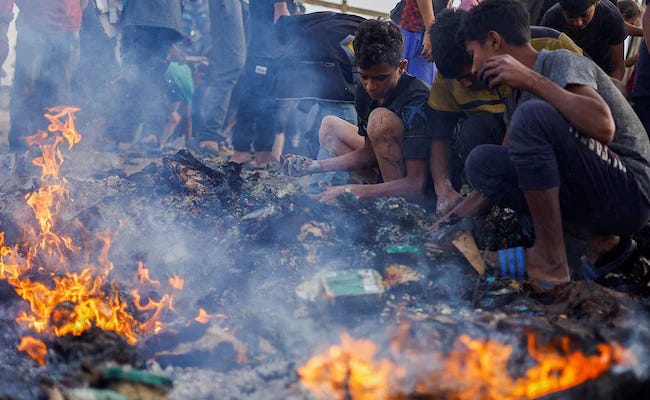For decades, the U.S. State Department has championed the cause of democracy, justifying countless interventions. From Iraq to Libya, the narrative has been one of liberating oppressed populations and fostering democratic institutions. Yet, this rhetoric often masks the strategic and economic interests driving U.S. actions. The commitment to democracy appears selective, applied robustly against adversaries while leniently towards allies who serve America's geopolitical interests. Nowhere is this selective outrage more evident than in Gaza.
The ongoing war between Israel and Palestine exposes glaring double standards in U.S. policy. While the State Department quickly condemns human rights abuses in adversarial nations, it remains conspicuously silent on the plight of Palestinians. This selective empathy underscores a broader hypocrisy: democracy and human rights are championed when convenient, but overlooked when inconvenient.
The recent war in Gaza has highlighted this hypocrisy. Despite mounting evidence of disproportionate force and civilian casualties, the U.S. continues to provide unwavering support to Israel. The narrative of self-defense is frequently invoked to justify actions that would be condemned if perpetrated by other nations.
President Biden had asserted that any Israeli ground invasion into Rafah would constitute a "red line," a threshold that, if crossed, would halt U.S. military support to Israel. However, this supposed commitment proved to be a mere fiction. As Israeli tanks rolled into central Rafah, the White House remained conspicuously silent, failing to hold Israel accountable despite mounting evidence of a humanitarian catastrophe.
The brutal reality of Rafah underscores a brutal reality: the much-touted "red line" proclaimed by President Biden was nothing more than an empty promise. The massacre that unfolded in this densely populated city, facilitated by U.S. military aid, has exposed the extent of American complicity in the violence perpetrated by Israeli forces against civilians in Gaza.
The Horrific Attack
The attack in Rafah was devastating. On a Sunday night, Israeli airstrikes targeted what was considered a safe zone—a camp for displaced Palestinians managed by the United Nations. The bombing resulted in a fire that engulfed the tents, killing 45 people, half of whom were women and children. Eyewitnesses reported scenes of unimaginable horror, with children watching their parents burn alive.
Israeli officials initially claimed the strike was a precise operation aimed at Hamas militants. However, this narrative quickly unraveled. Reports confirmed that the bombs used in the attack were supplied by the United States, implicating the U.S. in the tragic events that unfolded. The excuse that the fire might have been caused by a weapons storage facility was dismissed by many as a weak attempt to shift blame onto the Palestinians themselves.
The U.S. mainstream media and government officials have characterized the massacre as a "tragic mistake," a description that has drawn widespread criticism. This portrayal attempts to downplay the calculated nature of the attack and the systemic issues underpinning it. The White House's insistence that Israel must take precautions to avoid civilian casualties rings hollow in the face of continued military support.
Public outrage has been immediate and palpable. In response, tens of thousands of people are planning to descend on Washington, D.C., on June 8th for an international day of protest against the genocide in Gaza. Organized by the Shut It Down for Palestine Coalition, this protest aims to hold the U.S. government accountable for its role in the ongoing violence.
The massacre in Rafah is a stark reminder of the human cost of geopolitical maneuvering and the hollow promises of those in power. As the international community watches in horror, it is imperative that we demand real accountability and an end to the complicity that enables such atrocities. The bloodshed in Gaza is not just an Israeli issue; it is a global one, with far-reaching implications for justice and human rights.
The upcoming protest on June 8th offers a chance to draw a true "red line"—one defined by the collective will of people standing against oppression and demanding change. Only through such concerted action can we hope to end the cycle of violence and ensure a future where all people can live in peace and dignity.




